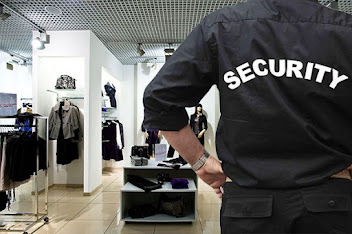The Role of Retail Security in Brand Protection
Brand protection is a critical aspect of business strategy for retailers, encompassing measures to safeguard a company's reputation, assets, and intellectual property. While brand protection efforts traditionally focus on marketing and legal strategies, retail security plays a crucial role in safeguarding a brand's integrity and ensuring its longevity in the marketplace. This article explores the multifaceted role of retail security in brand protection and the strategies employed to mitigate risks and uphold brand image.
Importance of Brand Protection in Retail:
Reputation Management: A retailer's reputation is one of its most valuable assets, influencing consumer trust, loyalty, and purchasing decisions. Any incidents of theft, fraud, or security breaches can tarnish a brand's reputation and erode consumer confidence.
Intellectual Property Protection: Retailers invest significant resources in developing and marketing their brands, trademarks, and proprietary products. Retail security measures help protect intellectual property from counterfeiting, theft, and unauthorized use, preserving the uniqueness and value of the brand.
Financial Stability: Brand-related incidents such as product recalls, data breaches, or reputational damage can have far-reaching financial implications for retailers, impacting sales, shareholder value, and market share. Effective brand protection measures help mitigate financial risks and safeguard the long-term profitability of the business.
The Role of Retail Security in Brand Protection:
Loss Prevention: Retail security guards play a crucial role in preventing theft, shoplifting, and shrinkage, which can directly impact a brand's bottom line. By maintaining a visible presence in stores, conducting surveillance, and implementing access control measures, security personnel deter would-be thieves and minimize losses.
Asset Protection: Retail security extends beyond physical merchandise to include assets such as equipment, fixtures, and technology systems. Security measures such as alarm systems, CCTV cameras, and inventory tracking software help safeguard these assets from theft, vandalism, and tampering, ensuring uninterrupted operations and preserving brand integrity.
Customer Safety and Experience: A positive shopping experience is integral to building brand loyalty and customer trust. Retail security measures, including well-trained security personnel, well-lit parking areas, and secure payment systems, contribute to a safe and enjoyable shopping environment, enhancing the overall customer experience and reinforcing brand reputation.
Fraud Prevention: With the rise of online shopping and electronic payments, retailers face increased risks of fraud, including credit card fraud, identity theft, and cyberattacks. Retail security solutions such as encryption technology, fraud detection software, and PCI compliance help mitigate these risks, protecting both customers and the brand from financial losses and reputational damage.
Crisis Management: In the event of security incidents, natural disasters, or other emergencies, retail security teams play a critical role in crisis management and response. By implementing emergency preparedness plans, training staff in evacuation procedures, and coordinating with law enforcement and emergency services, security personnel help minimize the impact of crises on brand reputation and operations.
Strategies for Effective Brand Protection Through Retail Security:
Comprehensive Risk Assessment: Retailers must conduct regular risk assessments to identify potential threats to their brand and develop tailored security strategies to address them effectively.
Investment in Technology: Leveraging advanced security technologies such as surveillance cameras, access control systems, and biometric authentication enhances the effectiveness of retail security measures and strengthens brand protection efforts.
Collaboration and Partnerships: Retailers should collaborate with industry associations, law enforcement agencies, and security professionals to share information, best practices, and resources for combating emerging threats and vulnerabilities.
Continuous Training and Education: Ongoing training and education programs ensure that retail security personnel are equipped with the knowledge, skills, and tools necessary to respond effectively to evolving security challenges and protect the brand's interests.
Conclusion:
Retail security plays a critical role in brand protection by safeguarding assets, preventing losses, ensuring customer safety, and mitigating risks to reputation and financial stability. By implementing proactive security measures, leveraging advanced technologies, and fostering a culture of vigilance and collaboration, retailers can enhance brand protection efforts and safeguard their reputation in the competitive marketplace. Investing in retail security is not only a prudent business decision but also a strategic imperative for preserving brand integrity and ensuring long-term success in today's dynamic retail landscape.



Comments
Post a Comment